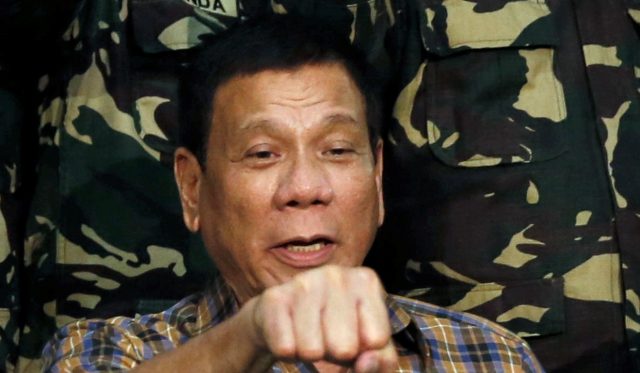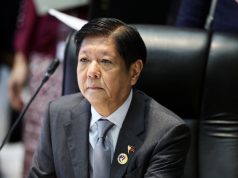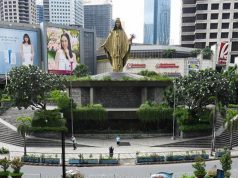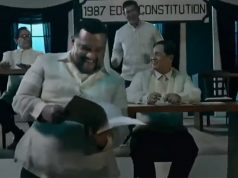Atty. Mel Sta. Maria is the Dean of the Far Eastern University Institute of Law. He also teaches at the Ateneo de Manila School of Law and the Pamantasan ng Lungsod ng Maynila College of Law.
Prior to the late President Corazon Aquino’s institution in 1986 of a revolutionary government, a corrupt administration was ensconced with a highly-politicized military, a rubber-stamp legislature, a subservient judiciary, and, most importantly, an operational but spuriously-ratified Constitution allowing a dictator, Ferdinand E. Marcos, to perpetuate himself in power with God-like powers and no accountability at all.
It fomented a tyrannical environment where those who dared oppose him disappeared, were tortured and/or killed. The country became economically bankrupt due to the unabated accumulation of ill-gotten wealth by the people in power and those allied to them.
It was necessary to dismantle such an oppressive and kleptocratic government.
President Corazon Aquino immediately went to work. A new Constitution was put in place in which public accountability, checks-and-balances, independence of the great branches of government, a fair electoral system, and respect for human rights once more constituted the underpinnings of governance.
As a result, the Philippines became known again as the most democratic nation in Asia, where the opposition can freely, without fear, ventilate grievances. Public accountability is not taken for granted. All presidents, from Ferdinand E. Marcos up to Benigno Aquino III, including Corazon Aquino herself, were haled before the courts after their terms on charges, whether or not with merit, to answer for alleged infractions of the law.
One — Joseph Estrada — was convicted of plunder, although he was pardoned by his successor, Gloria Macapagal-Arroyo.
The Constitution’s Bill of Rights has been strengthened by, among others, not granting any president the power to issue warrants of arrest which could be used, like during the Martial Law period, as a “sword of Damocles” against everybody. Civilian authority over the military has been especially emphasized by providing limitations on the imposition of Martial Law. Amendment Numbers 5 and 6 of the Marcos Constitution allowing the President to legislate were abolished. The veto-power by the president can be counter-vetoed by the Congress. The peaceful turnover of power through regular elections has been successfully undertaken.
Internationally, the Philippines’ reputation improved, bolstered by the fact that it faced up to China’s aggressive and illegal island grabbing activities in the West Philippine Sea. The country earned the genuine respect of the world, particularly our ASEAN neighbors. Investor confidence increased. The economy grew.
After a national election that was considered fair and honest, Rodrigo Duterte assumed the presidency of a country politically and economically healthy.
But nearly one and a half years from that assumption, the Philippines has become an area of international concern because of extrajudicial killings, generally of the poor, perceived as encouraged by the powers-that-be in their “war on drugs.”
Relationships with the European Union have become shaky, endangering trade benefits. The United States, from the declaration of President Duterte, has, confusingly, either been a long-time ally that “betrayed” the Philippines or is still the “best of friends.”
The ASEAN countries are probably perplexed because, despite the comprehensive victory against China in the West Philippine Sea Case decided by the International Permanent Court of Arbitration, the Duterte administration appears to be kowtowing to China, exhibiting an almost servile deference.
Net international reserves by the end of October 2017 were down by $0.39 billion. However, foreign direct investment appears to be maintaining its decent inflow-record as a result of the economic foundations laid down and strengthened through all the previous years of building them by the prior administrations.
Government, despite Duterte’s incoherent statements and the explanations of his subalterns, is operating smoothly due to the structures put in place and improved on since President Corazon Aquino’s administration and the succeeding ones.
The Marawi terror attack has been checked by the efforts and sacrifices of the Armed Forces of the Philippines. Ordinary people are going about their lives working hard to earn a living. Our OFWs are continually remitting billions of dollars helping cushion the impact of any inflationary situation. The stock market is performing not badly.
However, opposition is growing and becoming very vocal. There are serious signs the administration, its allies and/or sympathizers want to silence the opposition, including government insiders who profess disagreement with President Duterte. One senator — Leila De Lima — is now in jail. Two other officials –Vice President Leni Robredo and Chief Justice Maria Lourdes Sereno — have impeachment cases pending against them, and another one — Ombudsperson Conchita Carpio Morales — faces the same threat. Significantly, all are women.
And apparently because of all these, the threat or advocacy of establishing a “revolutionary” government has been bandied about by President Duterte and/or his sympathizers.
Despite a majority of legislators and members of the Supreme Court already agreeing — some say surrendering — to the president’s every desire, including, many believe, his every whim and caprice, those who advocate a “revolutionary” government desire more authority just like during the Marcos Martial Law era.
This hoped for move is plainly meant to pave the way for the exercise of unrestricted powers beyond those provided and limited by the Constitution. And, not surprisingly, many decent and democratically minded government officials and workers, including those in the Armed Forces, will not want to be a part of this adventure.
Unlike a real “revolution” where the people wanting change come from the outside, the one invoked by Duterte and his sympathizers involves officials already in the corridors of power. It is like the autocracy of Adolf Hitler, Benito Mussolini, Japan’s wartime dictator Hideki Tojo, and Marcos, who all exploited the democratic and/or prevailing systems during their time to grab ascendancy in government and install despotic regimes through which they and their cohorts lorded over their nation and, worse, fostering blind obedience on the part of their militaries.
No matter how much the proponents envision this kind of dictatorship, the ruler will always consider himself or herself the law. There will be nothing done unless it conforms to the twisted desires of the despotic leader, whoever he or she may be. Tortures, disappearances and death, not to mention thievery of the national treasury, will again happen with impunity.
And indeed, to regard their proposed government as “revolutionary” is an insult to the great revolutions and revolutionaries the world has seen.
A true revolution is the revolution of a Mandela, Bonifacio, Gandhi, Sun Yat Sen, Washington, Bolivar, Walesa, and, yes, Cory Aquino. It is a struggle for liberty based on the respect for human rights, equality and moral integrity. It is a pursuit of civility, justice and accountability. It is a fight against official hypocrisy, deception and duplicity. Its objective is the ouster of a vulgar and deadly government and its single-minded focus on more power and impunity.
And so a “revolutionary government” for people already running this government? More of unbridled unconstitutional domination of the country. Simply despotism.
We should not stand idly by and let this happen.










